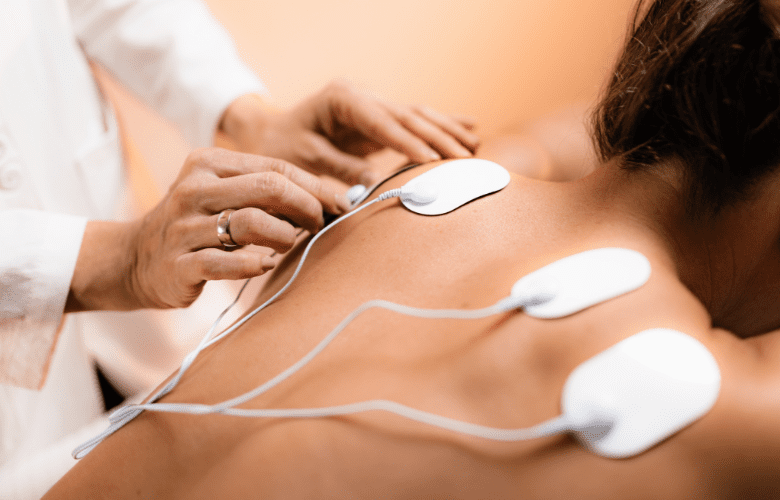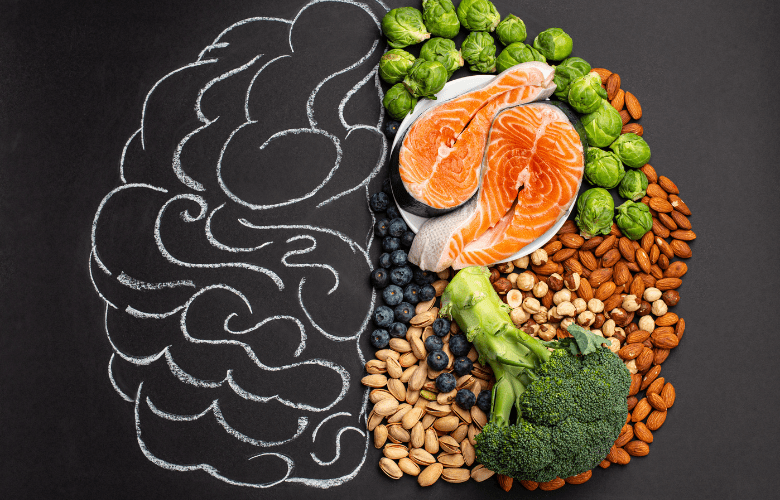3 Proven Root-Cause Methods for Effective Vagus Nerve Healing
Have you been struggling with chronic health issues and have tried recommended vagal toning strategies like cold plunges, massage, and breath work but haven’t seen much relief? The reason is simple: you need to address the root causes of your issues, which require a more comprehensive approach. In this article, we’re exploring 3 powerful methods for effective vagus nerve healing. Discover how to heal the vagus nerve naturally by targeting the underlying issues holding you back.
THE VAGUS NERVE & ITS KEY FUNCTIONS
The vagus nerve, also known as the 10th cranial nerve or cranial nerve X, is a critical component of the human nervous system. It starts in the medulla oblongata—a part of the brain that connects to the spinal cord—and branches out through the neck to reach vital organs like the heart, lungs, and stomach. This extensive reach makes this nerve the longest of the 12 cranial nerves.
The vagus nerve is responsible for regulating various essential functions in the body, including:
1. Autonomic Nervous System Regulation
The vagus nerve is a major component of the parasympathetic nervous system, which controls the “rest and digest” response in the body. It helps regulate your heart rate and breathing, promoting relaxation and calmness. It ensures that your body operates smoothly and efficiently, even in the face of stress or excitement.
2. Heart Function
Through its parasympathetic control, the vagus nerve helps to slow down your heart rate, particularly during periods of rest or relaxation, leading to overall heart health and maintaining a steady rhythm. Additionally, the vagus nerve can modulate blood pressure, contributing to your body’s ability to regulate cardiovascular function effectively.
3. Digestive System Control
Another important function of the vagus nerve is the regulation of various digestive processes, including peristalsis (the movement of food through the digestive tract), gastric acid secretion, and the release of digestive enzymes. It also helps signal feelings of hunger and fullness to the brain.
5. Respiratory Function
When you inhale, the vagus nerve sends signals to your diaphragm and intercostal muscles (the ones between your ribs), encouraging them to contract and expand your chest cavity. This allows your lungs to fill up with oxygen-rich air. Then, when you exhale, the vagus nerve helps relax these muscles, letting the air flow out smoothly.
6. Inflammatory Response
When there’s inflammation in your body, sensory fibers of the vagus nerve detect it and send signals to your brainstem. From there, your brainstem sends signals back through the vagus nerve to various organs, including the spleen and other immune tissues. These signals trigger the release of anti-inflammatory molecules, dampening the inflammatory response.
7. Voice Production
The vagus nerve plays a crucial role in voice production by innervating the muscles of the larynx, which houses the vocal cords. These muscles control the position and tension of the vocal cords, allowing for adjustments in pitch, volume, and tone during speech and singing for clear and effective communication.
8. Neurotransmission
Neurotransmitters like acetylcholine, which are released by the vagus nerve, are crucial in attention, memory, and cognitive processing. They influence the activity of neurons in various brain regions, including the hippocampus, which is essential for memory formation and spatial navigation.
CAUSES OF A DYSFUNCTIONAL VAGUS NERVE
A dysfunctional vagus nerve refers to an impairment or disruption in the normal functioning of the vagus nerve. Several factors can contribute to its dysfunction, including:
- Trauma or injury: Physical trauma, such as head injuries or surgery in the neck or chest area, can damage the vagus nerve and disrupt its function.
- Chronic stress: Prolonged exposure to stress can lead to dysregulation of the autonomic nervous system, including the vagus nerve, affecting its ability to modulate bodily functions.
- Inflammatory conditions: Conditions characterized by chronic inflammation, such as autoimmune disorders or chronic infections, may impair vagus nerve function.
- Digestive disorders: Conditions affecting the gastrointestinal tract, such as inflammatory bowel disease (IBD), gastro esophageal reflux disease (GERD), or irritable bowel syndrome (IBS), can impact vagus nerve function.
- Cardiovascular diseases: Heart conditions, such as myocardial infarction (heart attack) or arrhythmias, can affect vagus nerve function due to their close relationship with the autonomic nervous system.
- Neurological disorders: Certain neurological conditions, including multiple sclerosis (MS) and Parkinson’s disease, can affect the vagus nerve and its signaling pathways.
- Obesity: Excess weight and obesity have been associated with vagus nerve dysfunction, possibly due to chronic inflammation and metabolic disturbances.
- Lifestyle factors: Unhealthy lifestyle habits like poor diet, lack of physical activity, smoking, excessive alcohol consumption, or inadequate sleep can contribute to vagus nerve dysfunction over time.
COMMON SIGNS OF VAGUS NERVE DYSFUNCTION
When the vagus nerve is dysfunctional, it may not adequately perform its regulatory roles, leading to a range of symptoms and health issues. Some common signs of its dysfunction may include:
- Irregular heart rate or blood pressure
- Digestive problems such as gastroparesis and acid reflux
- Breathing difficulties or respiratory issues
- Mood disorders like depression, anxiety, or mood swings
- Immune system dysfunction or increased susceptibility to infections
- Autonomic dysregulation, resulting in symptoms like excessive sweating or abnormal pupil dilation
- Cognitive impairment or difficulty with memory and concentration
- Sleep disturbances such as insomnia or sleep apnea
3 PROVEN METHODS TO HEAL A DYSFUNCTIONING VAGUS NERVE
Ready to tackle vagus nerve dysfunction head-on? Explore three effective methods that offer real solutions for healing. These proven approaches target the root causes of vagus nerve dysfunction for lasting relief and optimal health.
1. Frequency Specific Microcurrent (FSM)
Frequency Specific Microcurrent (FSM) is a non-invasive therapeutic technique that uses very low-level electrical currents to treat various health conditions. The currents used in FSM are so small, akin to the body’s natural electrical currents, measured in micro amperes (millionths of an ampere).
FSM delivers precise frequencies of electrical currents to targeted areas of the body, including areas innervated by the vagus nerve. By applying these frequencies, FSM may help restore optimal function to the vagus nerve and improve its signaling pathways.
Key Benefits:
- Pain relief: FSM has been used to alleviate chronic pain conditions by modulating pain perception and reducing inflammation. With reduced inflammation, FSM helps to create a more favorable environment for nerve healing and overall health and wellness.
- Enhanced Circulation: FSM can improve blood flow to the targeted area, ensuring that the vagus nerve and surrounding tissues receive adequate oxygen and nutrients needed for repair and regeneration.
- Improved nerve function: By targeting the vagus nerve and associated pathways, FSM may help enhance nerve function and promote better autonomic nervous system regulation.
2. Acupuncture
Acupuncture is an ancient healing practice originating from Traditional Chinese Medicine (TCM). It involves the insertion of thin needles into specific points on the body, known as acupoints. It is believed to help balance the flow of energy, or Qi, throughout the body’s meridian pathways, promoting health and well-being.
Specific acupoints, particularly those located on the ear, neck, and body, are known to influence the vagus nerve. By stimulating these points, acupuncture can enhance vagal activity and improve its function.
Key Benefits:
- Stress reduction: By reducing levels of stress hormones such as cortisol, acupuncture can help mitigate the negative effects of chronic stress on the vagus nerve. Plus, by stimulating the release of endorphins and other neurotransmitters, acupuncture promotes a state of relaxation and calm, which supports vagus nerve health.
- Emotional Regulation: Acupuncture influences the release of neurotransmitters like serotonin and dopamine, which play key roles in mood regulation. By alleviating symptoms of depression, anxiety, and mood swings, acupuncture can reduce the overall stress load on the body, benefiting vagal function.
- Quality Sleep: Acupuncture can help improve sleep quality by promoting relaxation and reducing symptoms of insomnia and sleep disturbances. Better sleep allows the body to recover and regenerate more effectively, supporting the healing of the vagus nerve.
3. Customized Nutrition
Certain vitamins, minerals, and other nutrients play crucial roles in nerve function, including the health and function of the vagus nerve. A functional nutritionist can identify nutrient deficiencies, make dietary adjustments, offer personalized nutrition plans, and provide comprehensive education and lifestyle guidance.
Essential nutrients:
-
- Omega-3 fatty acids: Found in fish oil, flaxseeds, and walnuts, omega-3 fatty acids are essential for nerve cell membrane integrity and function.
- B vitamins: B vitamins, particularly B6, B12, and folate, are important for nerve health and neurotransmitter synthesis. Sources include leafy greens and legumes.
- Magnesium: Magnesium is involved in hundreds of enzymatic reactions in the body, including nerve transmission and muscle function. Good sources include nuts, seeds, and leafy greens.
- Vitamin D: Adequate vitamin D levels are essential for nerve health and may help reduce inflammation. Fatty fish, fish liver oils, and certain mushrooms are primary sources.
- Choline: A component of phospholipids, choline is essential for the structural integrity of nerve cell membranes. It is found in eggs, liver, fish, and cruciferous vegetables like broccoli and cabbage.
- Taurine: Found in meat, fish, dairy, and supplements, taurine has neuroprotective properties and helps regulate neurotransmitters.
- Antioxidants: Foods high in antioxidants, such as berries, dark chocolate, and green tea, help combat oxidative stress that can damage nerve cells.
- Electrolytes: Maintaining electrolyte balance is critical for overall nerve health and efficient vagal activity. Electrolytes can be obtained from a balanced diet that includes fruits, vegetables, nuts, seeds, and electrolyte-rich fluids.
THE BOTTOM LINE
Vagus nerve healing is a journey that needs a mix of strategies to tackle root issues and boost overall nerve health. How to heal the vagus nerve naturally starts with understanding and implementing proven practices in your daily life. By incorporating methods like FSM, acupuncture, and customized nutrition plans into your lifestyle, you can effectively promote vagal tone and function. And for the best outcomes, don’t hesitate to get expert guidance along the way.













